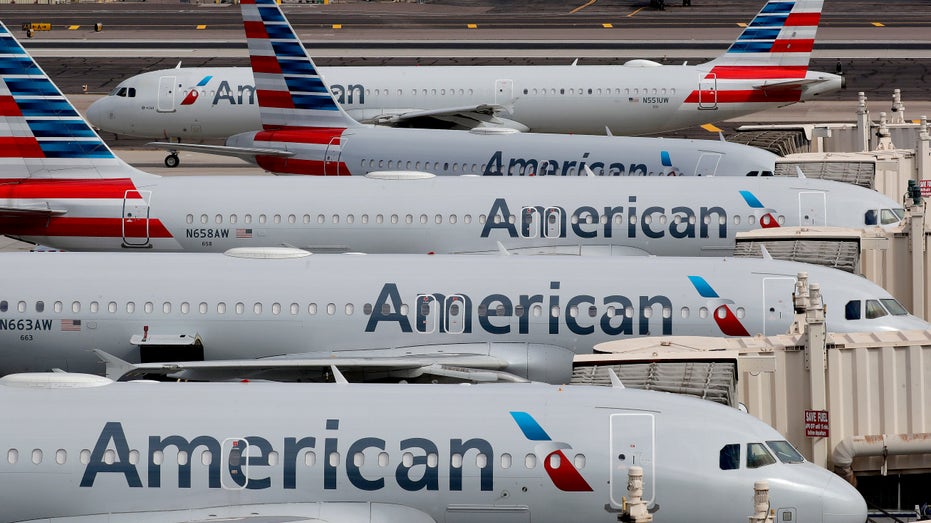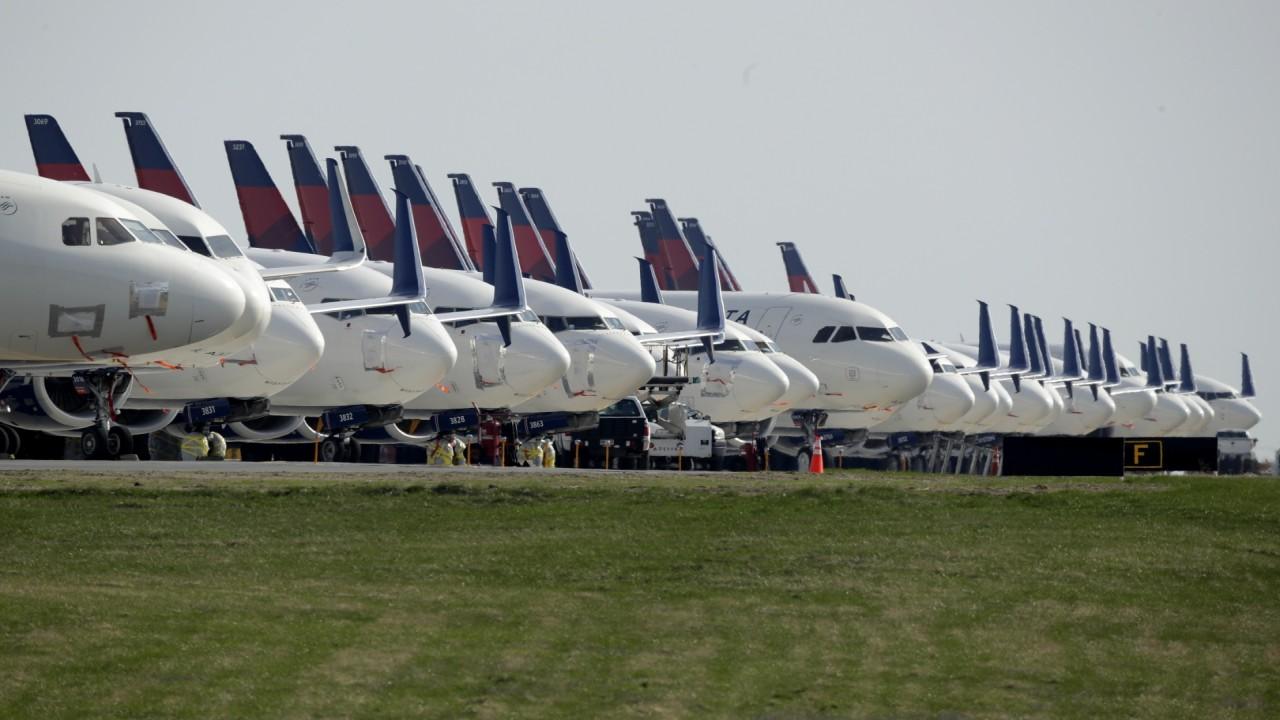Airlines struggle during coronavirus pandemic with grounded fleets
Airports around the world have become 'giant parking lots'
Get all the latest news on coronavirus and more delivered daily to your inbox. Sign up here.
Woes continue to mount for major airlines that are being forced to park a record number of planes after the COVID-19 pandemic created a historically low demand for flights.
About 10,500 passenger aircraft, roughly 40 percent of the world's fleet, have been grounded as travel restrictions increase to stem the rapidly spreading virus, according to the International Air Transport Association. In the United States, Delta and American -- two of the nation's largest carriers -- plan to ground more than 1,000 planes combined.
The Transportation Security Administration screened 94,931 passengers Wednesday, compared to more than 2.2 million at the same point a year ago, marking a 96 percent decline. This was also the second straight day under 100,000 passengers. The nation last averaged fewer than 100,000 passengers a day in 1954, according to figures from trade group Airlines for America.
The decline is projected to translate into a multibillion-dollar revenue loss. Last month, IATA estimated that global industry passenger revenues could plummet $252 billion, or 44 percent, from 2019.
United Airlines says it is losing $100 million a day while Delta says it is burning through $60 million a day. All the leading U.S. carriers have applied for federal grants to cover payroll costs through September and some are likely to seek federal loans or loan guarantees.
CORONAVIRUS FORCES AMERICAN AIRLINES TO TEMPORARILY SUSPEND MOST NYC FLIGHTS
As the number of parked planes pile up, however, airlines begin to face the unprecedented challenge of where to place them.
Around the world, airlines are working to move their fleet "close to home" which includes taxiways, maintenance areas, terminal areas as well as some runways, the IATA said.

American Airlines jets sit idly at their gates as a jet arrives at Sky Harbor International Airport in Phoenix on March 25, 2020. (AP Photo/Matt York, File)
STAY CORONAVIRUS-FREE WHILE FLYING: USE THESE HEALTH TIPS ON AIRPLANES
“Airlines want to keep their aircraft as close as they can to their hub airports because they can maintain them and get them back into the air relatively quickly,” said Sergio Fernandez, IATA’s Europe regional director of airport, passenger, cargo and security.
Grounded aircraft at Delta’s biggest hub, Hartsfield-Jackson Airport in Atlanta, are sitting idle on taxiways. Likewise, American has a growing fleet of grounded planes sitting at a smaller airport in Tulsa, Oklahoma, according to IATA's report.
As more airports transition into parking lots, cash-strapped airlines are left to face parking charges at some airports around the world.
While some airports such as Heathrow in London and Charles de Gaulle Airport in Paris have reportedly waived parking fees, other airports have yet to do so, according to the association.
The charges, which IATA said account for less than two percent of airport revenues under normal circumstances, could "be the make-or-break for some airlines" in this current environment.
The recovery in air travel — whenever it occurs — could depend on many factors including social-distancing rules and the state of the economy, which has already left more than 16 million people filing new claims for unemployment benefits in the last three weeks.
CLICK HERE TO READ MORE ON FOX BUSINESS
The Associated Press contributed to this report.




















